Over the past years, Egyptians have gone through economic conditions that have affected the most important aspects of their lives, for reasons that the official discourse attributes to "global conditions". However reality offers a different explanation, part of which is mentioned in a new report by the Egyptian Initiative for Personal Rights (EIPR).
The research paper, published in late March, titled "How the poor live in light of the high prices.. The impact of high inflation and the devaluation of the Egyptian pound on Egyptians' rights", found that these two factors "cause an increase in the cost of living to rise in a way that affects the rights of citizens", even describing the situation as "storms" that strike the standard of living of Egyptians. The report recommends taking measures to improve the situation, most notably "seeking growth based on the production of real goods and services."
What is noteworthy is that this is in line with varying international reports, which have consistently praised Egypt's growth rates in the past while following economic policies that led to the current situation.
The report examines the impact of high prices on the poor through statistics. It lists inflation as the primary factor for the decline of the Egyptian currency, affecting citizens' economic and social rights and access to adequate food and basic services
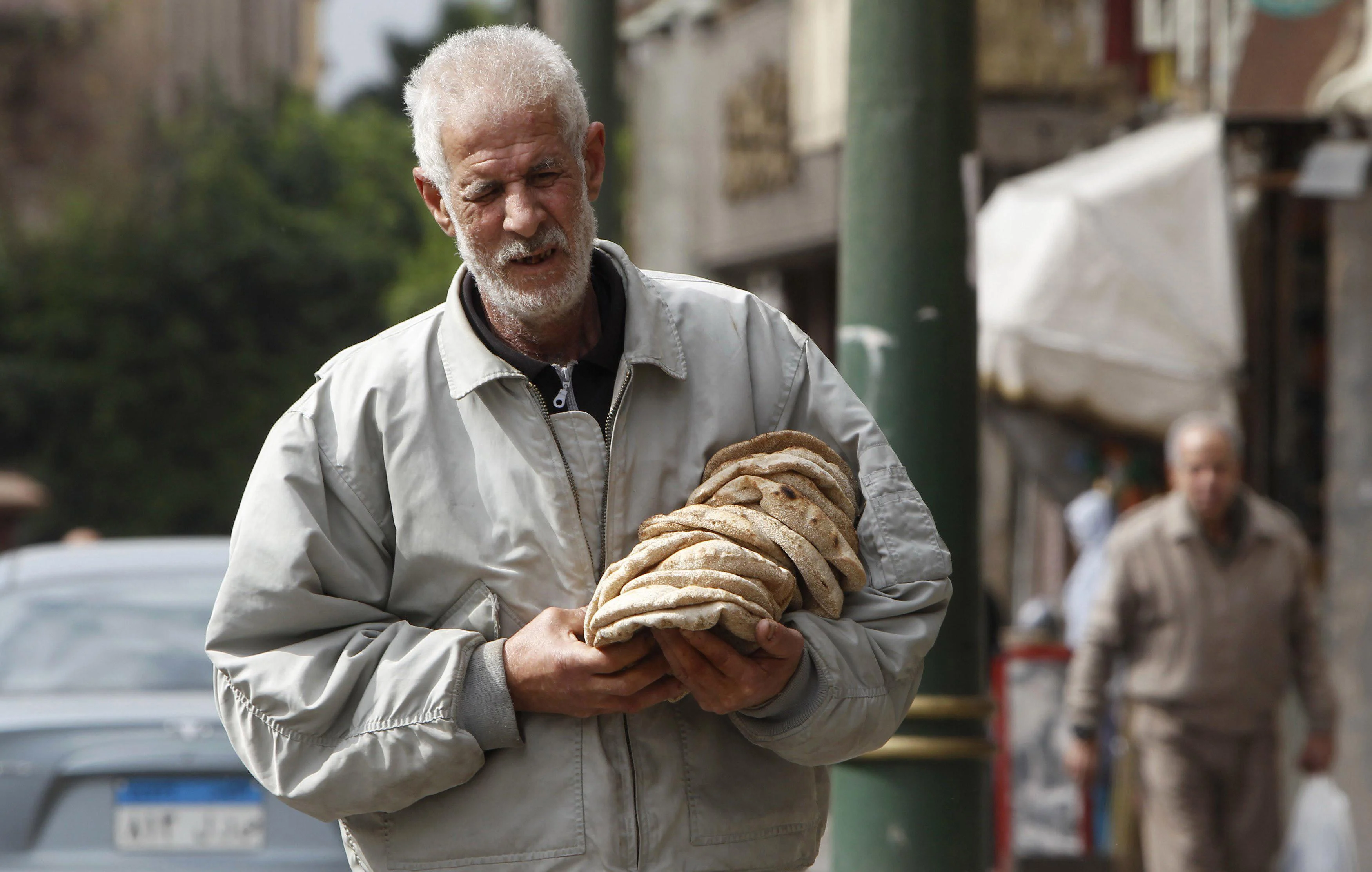
The cancer of inflation
The report, prepared by Mai Kabil, a researcher in the initiative's Economic and Social Justice Unit, noted that the rate of increase in consumer prices (inflation) "jumped to its highest levels in more than five years, recording 9.32% for the entire republic in February of last year. The rise in food and drink prices was driven by the impact, which also affected basic goods and services, such as transportation, healthcare and education," according to official data from the Central Bank and the Central Agency for Public Mobilization and Statistics (CAPMAS).
International institutions and experts that have long praised Egypt's development rates during the past decade are the same ones criticizing the Egyptian economic model that was used during this decade and led to the current economic situation
The researcher considered that this situation "represents significant pressure on the living standards of most Egyptians, and poses a danger to the poor, who are unable to provide their basic needs, and whose percentage of the total Egyptians was close to one-third two years ago (according to government statistics) at the beginning of the crisis," warning of "increased risks as the pound continues to be subjected to pressure, and many international investment banks predict its price will be reduced again soon." In a report published by the Wall Street Journal a few days ago, the American economic newspaper monitored that there are pressures from Egypt's allies and supporters in the Arab Gulf for a sharp new devaluation of the pound, which is expected in the near future as the economic crisis intensifies and existing economic policies continue.
The report, which examines the impact of high prices on the poor through statistics, lists inflation as the primary factor related to the devaluation of the Egyptian currency, "in contrast to the high rates of price increase, in a way that directly affects the economic and social rights of citizens, and their access to adequate food and basic services, and increases the high levels of inequality in terms of income and wealth."
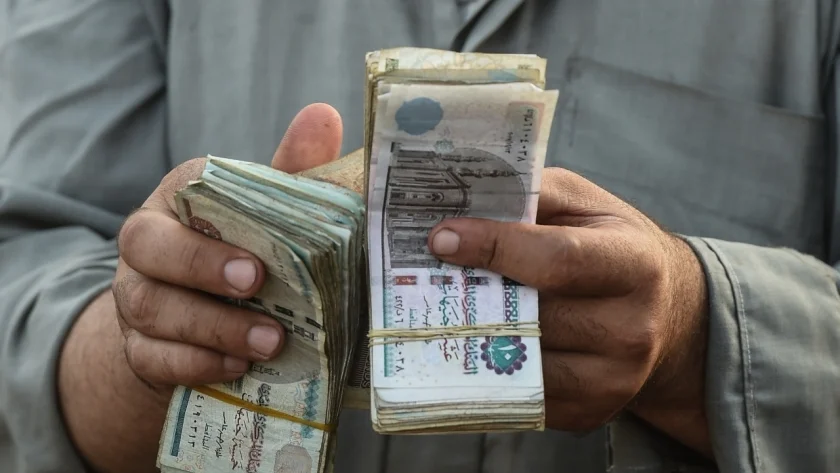
"Cancer" is the word Dr. Sherif el-Demerdash, an economic expert, chose to describe inflation in his interview with Raseef22, saying, "The attempts being made regarding the income of individuals to increase wages or pensions, or develop social protection programs, have not kept pace with the cancer of rising prices". He then asks, "One year ago, prices have tripled. So have wages or pensions also tripled? Then people are in a worse financial condition."
The situation that el-Demerdash is talking about is confirmed by the World Bank in a statistic that revealed that Egypt is "sixth globally in terms of rising food commodity prices in 2022." This has a significant impact on the poor. The EIPR study says that "their numbers are increasing and their conditions are deteriorating," based on what was documented by an official research, the "Income and Expenditure Survey" issued in 2020 by the Central Agency for Mobilization and Statistics (CAPMAS), which monitored that "the poorest segments allocate 47% of their spending on food and drink, not only due to their limited income". The explanation of the last sentence is contained in the same official pamphlets that show that food commodity groups are the highest in terms of price increases, by 61.5% in February of last year.
Economic expert: "The decisions to increase incomes or social protection programs for the poorest segments do not correspond to the price increase, or even that of basic goods. There's a gap created by the failure to keep pace with the price increases"
Crises for the Egyptian pound
Working inflation is the most prominent aspect of the citizens' crisis with their basic rights. However, it is not the only factor. Another factor that is allied with it is related to the pound, which has been subjected to several fluctuations regarding its value and has become a factor in other crises.
According to EIPR, other crises were present before the year 2022, such as "the liberalization of the exchange rate (a currency float) in 2016, the increase in fuel prices, and the economic effects of the Covid pandemic in 2020," as evidenced by the aforementioned research and expenditure report, which indicated that "the average spending per person in the lower bracket amounted to 5,854 Egyptian pounds annually (488 pounds per month), and those belonging to that segment fall below the extreme poverty line, that is, suffer from starvation."
The most important coping mechanisms adopted by families include significantly reducing their spending on unsubsidized food commodities such as meat, eggs, poultry, fish and milk, and increase consumption of alternative commodities such as potatoes and pasta
Ruled by hunger
For his part, el-Demerdash says, "The decisions taken on increasing incomes, pensions or social protection programs for the poorest segments do not correspond to the increase in prices, even the prices of basic goods and services," considering that "There is a gap created by the failure of these decisions to keep pace with the price increases."
The economist's opinion is consistent with what was revealed by a research issued by the Arab Barometer on "Food Insecurity and its Discontents in the Middle East and North Africa (2021-2022)", where Egypt came out on top with 68% in terms of running out of food before they had money to buy more. Also, Egyptians were among the citizens of a number of countries "who often or sometimes ran out of food, expressed greater preference for the government to lower the cost of living by limiting inflation than their food secure counterparts."
According to the initiative's research, a study on "Changing consumption patterns after the devaluation of the pound in March 2022" conducted by the the International Food Policy Research Institute on six thousand poor or close to poverty families, revealed that "the most important coping mechanisms followed by households included significantly reducing their spending on unsubsidized food commodities, such as meat, eggs, poultry, fish and milk, and increase their consumption of alternative commodities such as potatoes and types of pasta."
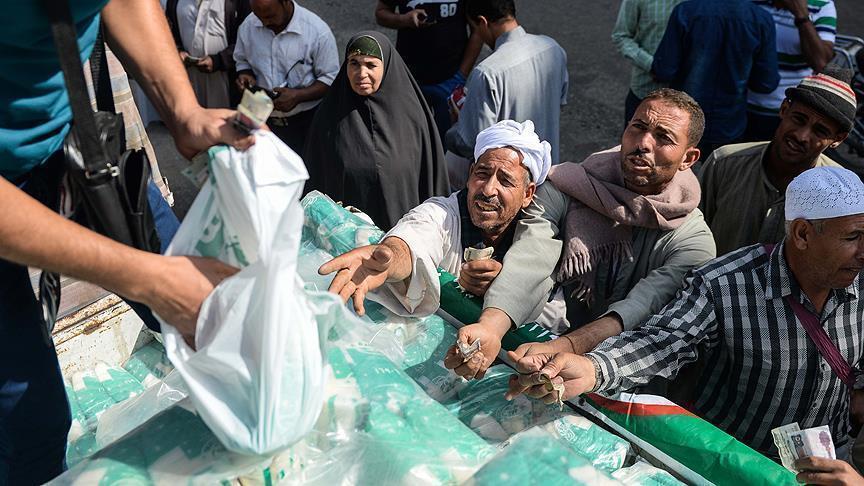
"Governmental" human rights are also faltering
The Egyptian authorities would like to deny the accusations of their continuous violations of human rights by insisting on directing the concept of rights to the primary and basic ones, such as food, drink, housing, health and education. Have they succeeded in fulfilling these rights?
Various economic and social studies, including the initiative's latest report, point to an uncomfortable answer in this regard. According to the report, the side effects of inflation and the pound crisis did not stop at food, as the increases also affected other living items and rights, including "housing and related facilities by 8% February last year compared to the same month in 2022, to be the second largest item in the lowest segment of spending by 23.1%. It is followed by healthcare with 8.3% of its spending."
Global crisis
The government blames the disruption of economic and living conditions on several factors, such as "terrorism", and often speaks of it as a "global crisis", as it appears to be prevalent in the discussions of the World Economic Conference and its experts. A report issued by the Information and Decision Support Center of the Council of Ministers last March entitled "Economic Crises.. Stumbling followed by recovery", highlighted a series of economic crises over the past almost century, stressing that "the existence of crises is normal and logical in the economic cycle."
Increasing the minimum wage is not enough to protect a large segment of the most vulnerable groups. The percentage of poor workers in the government sector doesn't exceed 12.2% compared to 37% working in private establishments and 50.9% outside establishments
Various analyses have been released, one of which spoke of bread and tourism crises caused by the Russian war. What has been documented by the global impact of hunger indicates the validity of the Egyptian government report, which asserted that "it is important for any economy to adapt to changes in the global economy." This is not denied by human rights research, which indicated that Egypt "imports more than 40% of its food needs, which made it more vulnerable to increasing global food prices." But he also believes that government rhetoric "focuses on it, while denying any role for the policies adopted by the state in recent years."
As for these policies, the research says that they "created a very fragile situation for its economy in its relationship with the world, represented by the regular and large expansion of foreign debt during the last ten years, and then its accumulation at a high pace after the signing of the IMF loan agreement in 2016, which led to an increase in Egypt's commitments to hard currency and narrowing the space for it to withstand any shocks that result in a shortage of dollar resources."
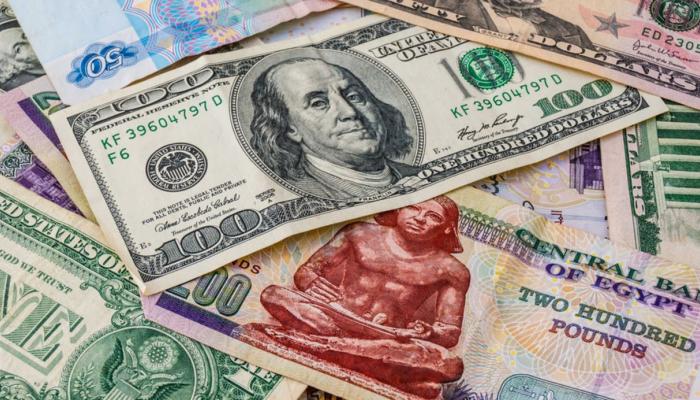
Limited reforms
"The decline in global food prices over the past months has not been reflected in inflation in Egypt, because the devaluation of the currency has had a stronger impact," says the EIPR report.
This was one of the aspects of the living crisis, according to the research, which found that the measures announced by the president in early March, to provide a kind of social protection for some groups, "are far from achieving the protection of millions who are threatened with deprivation of their right to food, education, health care and various basic rights."
The government measures, which included raising the minimum wage and increasing pensions, "may not have been strong enough" to confront a situation that the research sees as exacerbated by "successive decisions to devalue the pound, losing in less than one year about half of its value against the US dollar."
In this assessment, the initiative had its reasons, as it believes that a measure such as increasing the minimum wage "is not enough to protect a large segment of the most vulnerable groups," because "the percentage of workers in the government sector among the poor does not exceed 12.2%, compared to 37% working in private establishments, and 50.9% outside establishments," according to official statistics.
In the face of the waves of high prices, the research offers proposals for a solution, including "making a decision to direct policies towards getting the economy out of the debt crisis, providing food support in the form of commodities because it is less affected by increasing inflation compared to cash or wage increases, and reducing the value-added tax"
As for el-Demerdash, he says, "What is key is priorities, not policies, because policies are built on priorities. By the way, even future policies that we say are not required to be built at the expense of the present, who will pay for them in terms of debts and loans? It's the future, it's a legacy that will be handed over to the future to pay the bill."
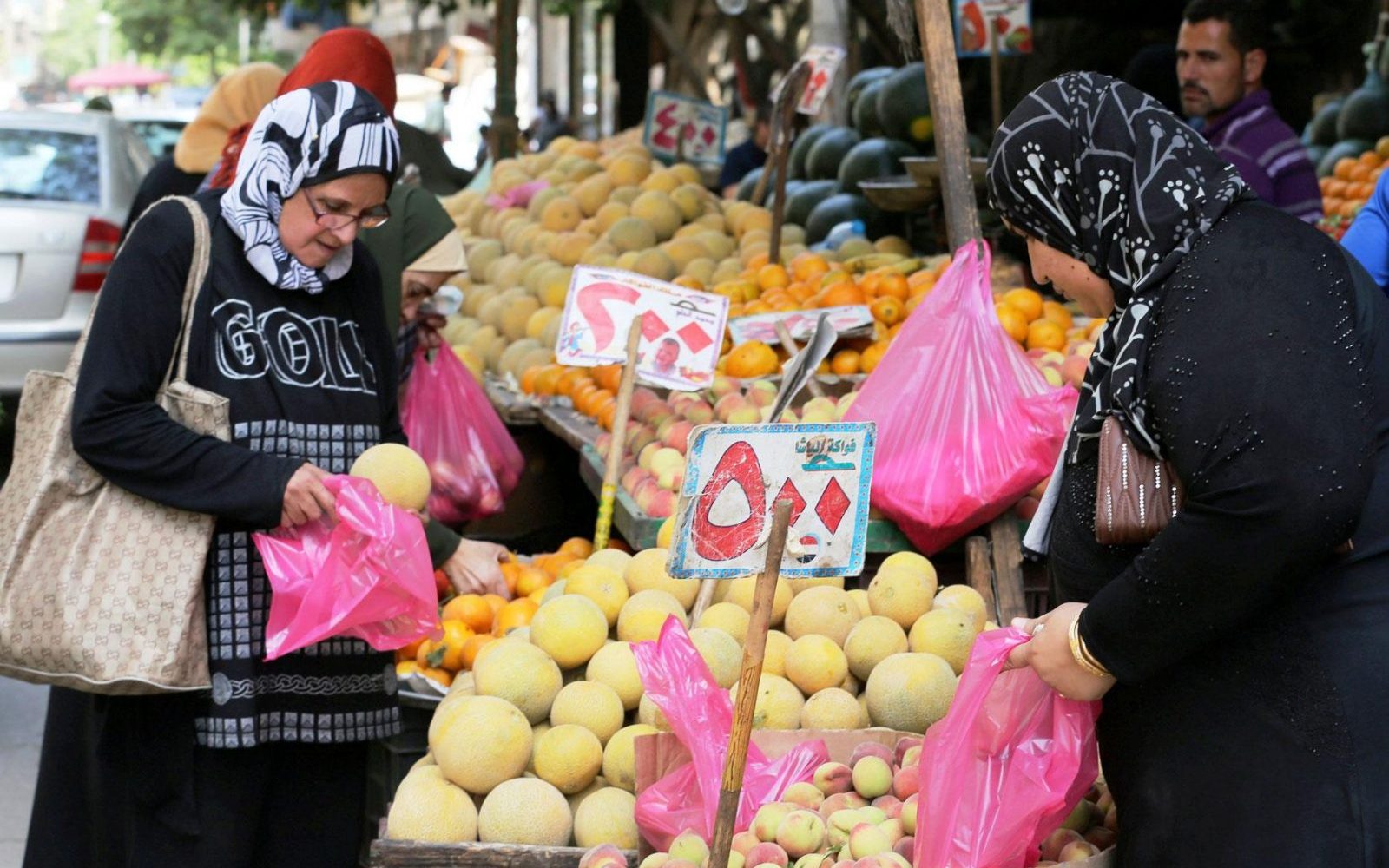
Raseef22 is a not for profit entity. Our focus is on quality journalism. Every contribution to the NasRaseef membership goes directly towards journalism production. We stand independent, not accepting corporate sponsorships, sponsored content or political funding.
Support our mission to keep Raseef22 available to all readers by clicking here!
Interested in writing with us? Check our pitch process here!





